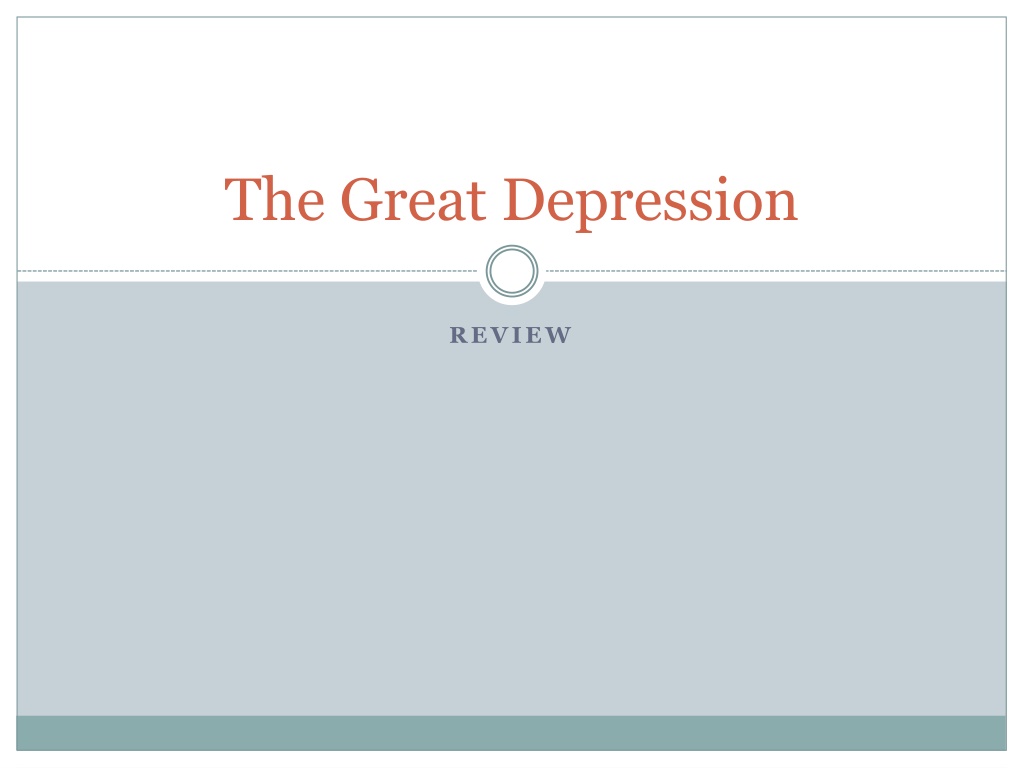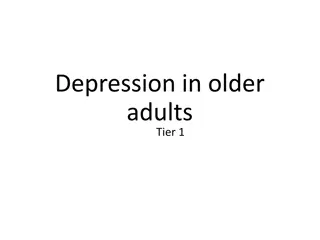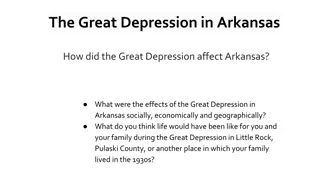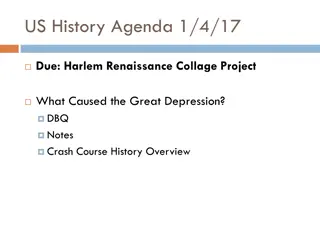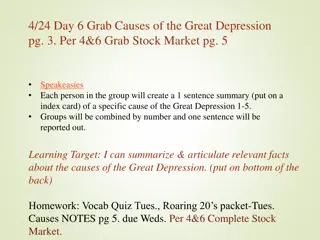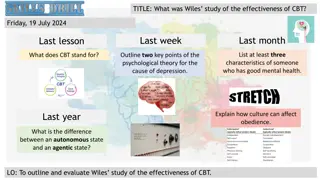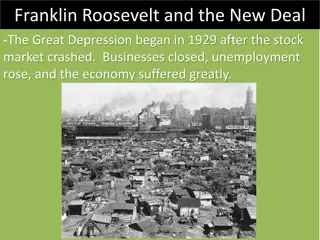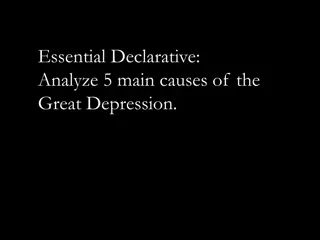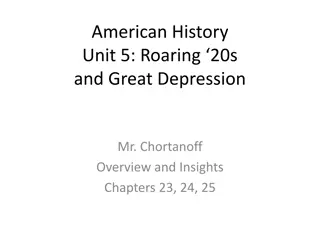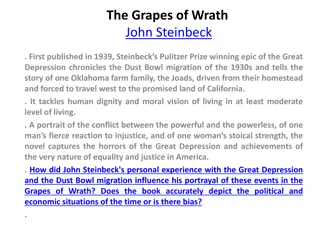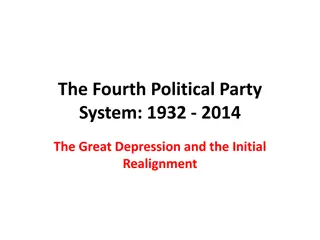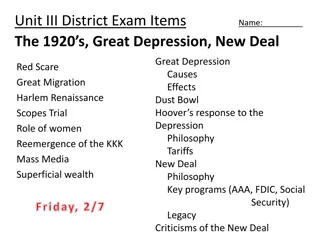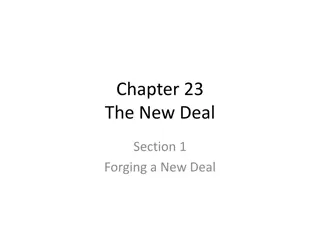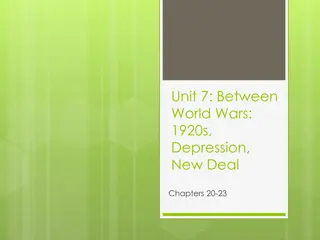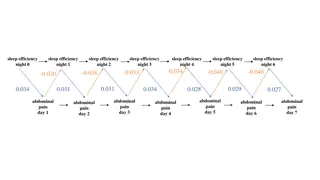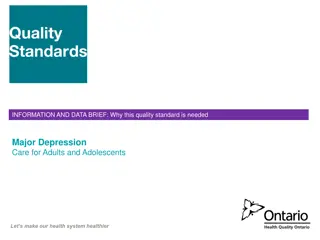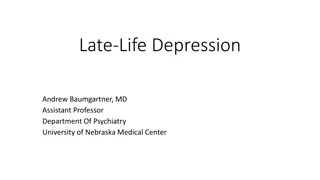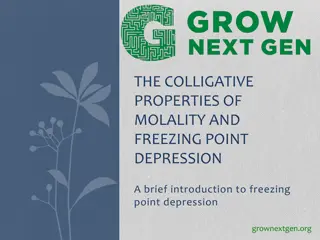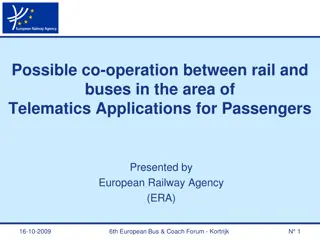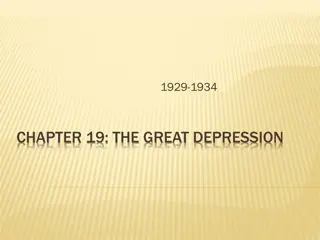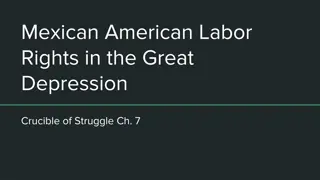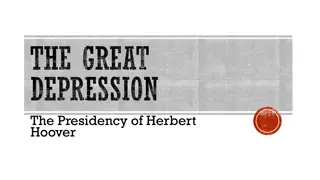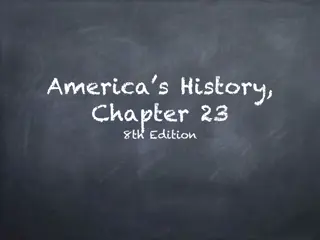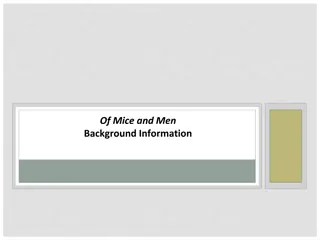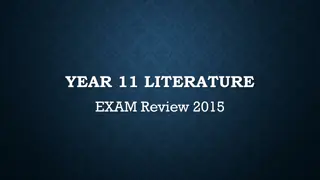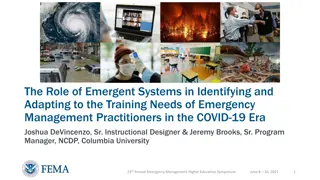Insights into the Great Depression Era
Explore key aspects of the Great Depression era, including concepts like rugged individualism, President Roosevelt's strategies, challenges faced by farmers in the Great Plains, the legacy of the New Deal, and significant events such as the 1932 presidential election. Engage with historical quotes and terminology to gain a deeper understanding of this pivotal period in American history.
Download Presentation

Please find below an Image/Link to download the presentation.
The content on the website is provided AS IS for your information and personal use only. It may not be sold, licensed, or shared on other websites without obtaining consent from the author. Download presentation by click this link. If you encounter any issues during the download, it is possible that the publisher has removed the file from their server.
E N D
Presentation Transcript
The Great Depression REVIEW
Which of the following Best describes rugged individualism ? a. People have the power to improve their economic and social position. b. Federal relief programs would promote individual character c. People do not have the power to improve their economic social positions. d. Self-reliance on the government
Which of the following was NOT a method used by President Roosevelt to earn the trust of the American people? a. President Roosevelt pushed 15 major bills through Congress in this first 100 days in office. b. He attacked the bank crisis by declaring a national bank holiday, which opened all banks c. He appealed directly to the people to generate support for his program, through his fire-side chats d. He and his aides drafted the Emergency Banking Relief Act which permitted solvent banks to reopen under government supervision
Which of the following was the worst problem farmers had in the Great Plains during the Great Depression? a. Farmers grew too much and decrease in demand caused worldwide prices to decline b. As farm incomes fell, farm tenancy soared c. The Dust Bowl forced migration of millions of farmers
What was the Most Important legacy of the New Deal? a. Provided immediate relief for people suffering during the Great Depression b. American people believed that the government should not ensure the health of the nation s economy c. To employed millions of American citizens d. A shift in government philosophy that the federal government has a responsibility to ensure the health of the nation s economy and the welfare of its citizens
Roosevelt won the 1932 presidential election after promising A) a "new deal" for the American people. B) an immediate end to the Depression. C) to close the stock market. D) to lower taxes
Who said "We have nothing to fear but fear itself?" A) Herbert Hoover B) Eleanor Roosevelt C) an anonymous broker on the New York Stock Exchange D) Franklin D. Roosevelt
The term "Hooverville" was used to describe A) housing built by the government. B) President Hoover's home town. C) shelters built by homeless people. D) the stock market
The Hawley-Smoot tariff A) gave government credit to large companies. B) created local relief programs. C) taxed American exports. D) taxed foreign imports.
The Twenty-first Amendment repealed A) unjust tax laws that had started the Great Depression. B) bankers' right to foreclose on farms. C) Prohibition. D) the right to consume alcohol
Hard times on the farms of the Great Plains caused many farm families to A) move to Canada. B) begin growing cash crops. C) move south to become sharecroppers. D) move to California
Hoover's refusal to provide direct federal aid relief caused A) his reelection. B) a rapidly improving economy. C) an increase in Republicans' popularity. D) Americans to blame him for their problems.
Overspeculation was common in the 1920s among A) the unemployed. B) investors in stocks. C) members of Herbert Hoover's administration. D) penny auction participants
The "Bonus Army," consisting of U.S. World War I veterans and their families, was defeated by A) German troops at Verdun. B) American soldiers under General MacArthur. C) hunger and cold. D) fortifications around Washington D.C.
Roosevelt's regular public radio addresses to the nation were known as the A) New Deal. B) Roosevelt Radio Hour. C) fireside chats. D) noontime talks.
In order to influence the Supreme Court, FDR tried to A) amend the Constitution. B) remove opposing judges from the Court. C) appoint judges favoring the New Deal. D) ignore Supreme Court rulings.
True/False Economic hardship was worse for African Americans and Mexican Americans.
True/False Vagrancy increased with the start of the Great Depression because many families were evicted from their homes.
True/False The Smoot-Hawley Tariff was a success because it raised rates and provoked retaliation from Britain, Canada, France, Germany, and other traditional trading partners.
True/False The AAA established the precedence for a system of farm price supports, subsidies, and surplus purchases that still continues more than half a century.
True/False African Americans begin voting Republican during the Great Depression.
True/False President Roosevelt continued to fight discrimination against African Americans even though he would lose support of Southern Democrats for New Deal Programs.
